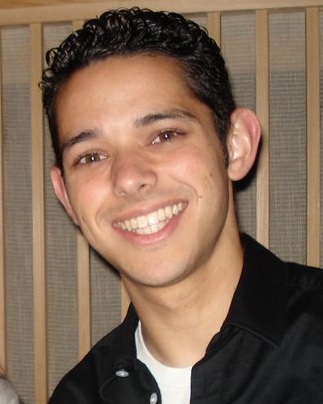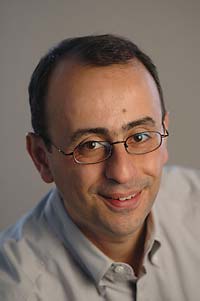The Systems Engineering program serves as the primary appointment for the Program Faculty, whose main teaching, research and service assignments serve the program. In addition, the program has affiliated faculty whose appointment is in other programs in the Civil and Environmental Engineering Department.Both categories are listed below. All faculty below are actively involved in the Systems Program, in various capabilities (teaching classes, advising students and conducting research, serving on committees etc.).
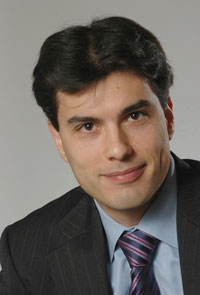 Alexandre M. Bayen
Alexandre M. Bayen
Associate Professor
Department of Civil and Environmental Engineering
Department of Electrical Engineering and Computer Sciences
bayen@berkeley.edu
Alexandre Bayen received the Engineering Degree in applied mathematics from the Ecole Polytechnique, France, in July 1998, the M.S. degree in aeronautics and astronautics from Stanford University in June 1999, and the Ph.D. in aeronautics and astronautics from Stanford University in December 2003. He was a Visiting Researcher at NASA Ames Research Center from 2000 to 2003. Between January 2004 and December 2004, he worked as the Research Director of the Autonomous Navigation Laboratory at the Laboratoire de Recherches Balistiques et Aerodynamiques, (Ministere de la Defense, Vernon, France), where he holds the rank of Major. He has been an Assistant Professor in the Department of Civil and Environmental Engineering at UC Berkeley since January 2005, and an Associate Professor since 2010. Bayen has authored one book and over 100 articles in peer reviewed journals and conferences.
He is the recipient of the Ballhaus Award from Stanford University, 2004, of the CAREER award from the National Science Foundation, 2009 and he is a NASA Top 10 Innovators on Water Sustainability, 2010. His projects Mobile Century and Mobile Millennium received the 2008 Best of ITS Award for ‘Best Innovative Practice’, at the ITS World Congress and a TRANNY Award from the California Transportation Foundation, 2009. Bayen is the recipient of the Presidential Early Career Award for Scientists and Engineers (PECASE) award from the White House, 2010. Mobile Millennium has been featured more than 100 times in the media, including TV channels and radio stations (CBS, NBC, ABC, CNET, NPR, KGO, the BBC), and in the popular press (Wall Street Journal, Washington Post, LA Times).
 Steven D. Glaser
Steven D. Glaser
Professor
Department of Civil and Environmental Engineering
glaser@ce.berkeley.edu
Steven D. Glaser is a professor in the Dept. of Civil and Environmental Engineering, University of California, Berkeley, and distinguished affiliate professor at the Technical University of Munich. He is a faculty scientist at the Lawrence Berkeley National Laboratory, and a research associate at the Intel Laboratory at Berkeley. His engineering training was at The University of Texas at Austin. Glaser has a B.A. in philosophy from Clark University, finished the apprentice program of Local 77 of the International Union of Operating Engineers, and then worked eight years as a driller, including one year in Iraq.
Glaser is Faculty Director of the Intelligent Infrastructure Initiative at CITRIS, the Center for Information Technology Research in the Interest of Society. His service has included serving on the system-wide committee on research policy, campus committees on research, and for faculty welfare, and numerous others in the college and department. Glaser was Academic Senate Liaison for the review of the EECS department in 2010.
His research specialty is sensing, include wireless sensor networks, nanoseismology, and geothermal energy. Glaser’s wireless sensor networks research covers a wide range of applications - from the first use of the Berkeley Mote to monitor the seismic safety of wood-frame houses to measuring the seismic response of the Masada mountain in Israel to measuring environmental hazards at Chinese historical sites such as Dunhuang.
Scott Moura
Assistant Professor
Department of Civil and Environmental Engineering
smoura@berkeley.edu
Scott Moura is an Assistant Professor at the University of California, Berkeley in Civil and Environmental Engineering. He received the Ph.D. degree from the University of Michigan in 2011, the M.S. degree from the University of Michigan in 2008, and the B.S. degree from the UC Berkeley, in 2006 - all in Mechanical Engineering. He was a postdoctoral scholar at UC San Diego in the Cymer Center for Control Systems and Dynamics, and a visiting researcher in the Centre Automatique et Systèmes at MINES ParisTech in Paris, France. He is a recipient of the National Science Foundation Graduate Research Fellowship, UC Presidential Postdoctoral Fellowship, University of Michigan Distinguished ProQuest Dissertation Honorable Mention, University of Michigan Rackham Merit Fellowship, College of Engineering Distinguished Leadership Award. He has also been honored as a Semi-Plenary speaker at the ASME Dynamic Systems and Control Conference (DSCC) and Best Student Paper Finalist at the American Control Conference and ASME DSCC. His research interests include optimal and adaptive control, PDE control, energy storage, smart grid systems, and batteries.
 Alexei Pozdnoukhov
Alexei Pozdnoukhov
Assistant Professor
Department of Civil and Environmental Engineering
alexeip@berkeley.edu
Prof. Alexei Pozdnoukhov graduated from the Physics Department of the Moscow State University in 2003 with a degree in mathematical physics. In 2006 he received a Ph.D. in computer science from EPFL, Switzerland, following his research in machine learning methods and computer vision that he carried out at IDIAP Research Institute in Martigny, Switzerland. He worked at the Institute of Geomatics and Analysis of Risk (IGAR), University of Lausanne, where he was developing approaches to apply machine learning techniques for geospatial data analysis. In 2008 he joined the National Centre for Geocomputation, National University of Ireland Maynooth as a recipient of a Stokes Lectureship from the Science Foundation Ireland. Prof. Pozdnoukhov leaded a group engaged in several research projects, including the strands of Irish Strategic Reseach Cluster in Advanced Geotechnologies, and several national and European projects.
Dr. Pozdnoukhov is a co-author of the book and an author of more than 20 peer-reviewed journal and full conference papers. He has developed methodologies to apply machine learning methods in computational environmental modelling, integrate prior knowledge and efficiently process geo-referenced data streams from sensor networks. He received a Google research award in 2011, an innovation award and a fellowship from the IBM Smarter Cities Technology Centre. His current research at CEE, UC Berkeley is in the area of complex data analysis in the domain of Smart Cities, including applications of streaming data analytics in urban mobility, location-based social networks and computational social science.
 Raja Sengupta
Raja Sengupta
Professor
Department of Civil and Environmental Engineering
sengupta@ce.berkeley.edu
Dr. Raja Sengupta is currently Professor in the CEE:Systems program at the University of California at Berkeley. He received his Ph.d from the EECS department of the University of Michigan, at Ann Arbor. His current research interests are in mobile computing, cloud computing, human behavior change technology, behavioral economics, transportation demand, robotics, drones, and control theory. He was Program Chair of the IEEE Conference on Autonomous Intelligent Networked Systems 2003 and Co-General Chair of the first ACM MOBICOM Workshop on Vehicular Ad-hoc Networks held in 2004, Co-Chair of the Program Committee for the second ACM MOBICOM Workshop on Vehicular Ad-hoc Networks held in 2005, Program Chair for the First International Symposium on Vehicular Computing Systems 2008, and will be Co-General Chair of IEEE WIVEC 2011.
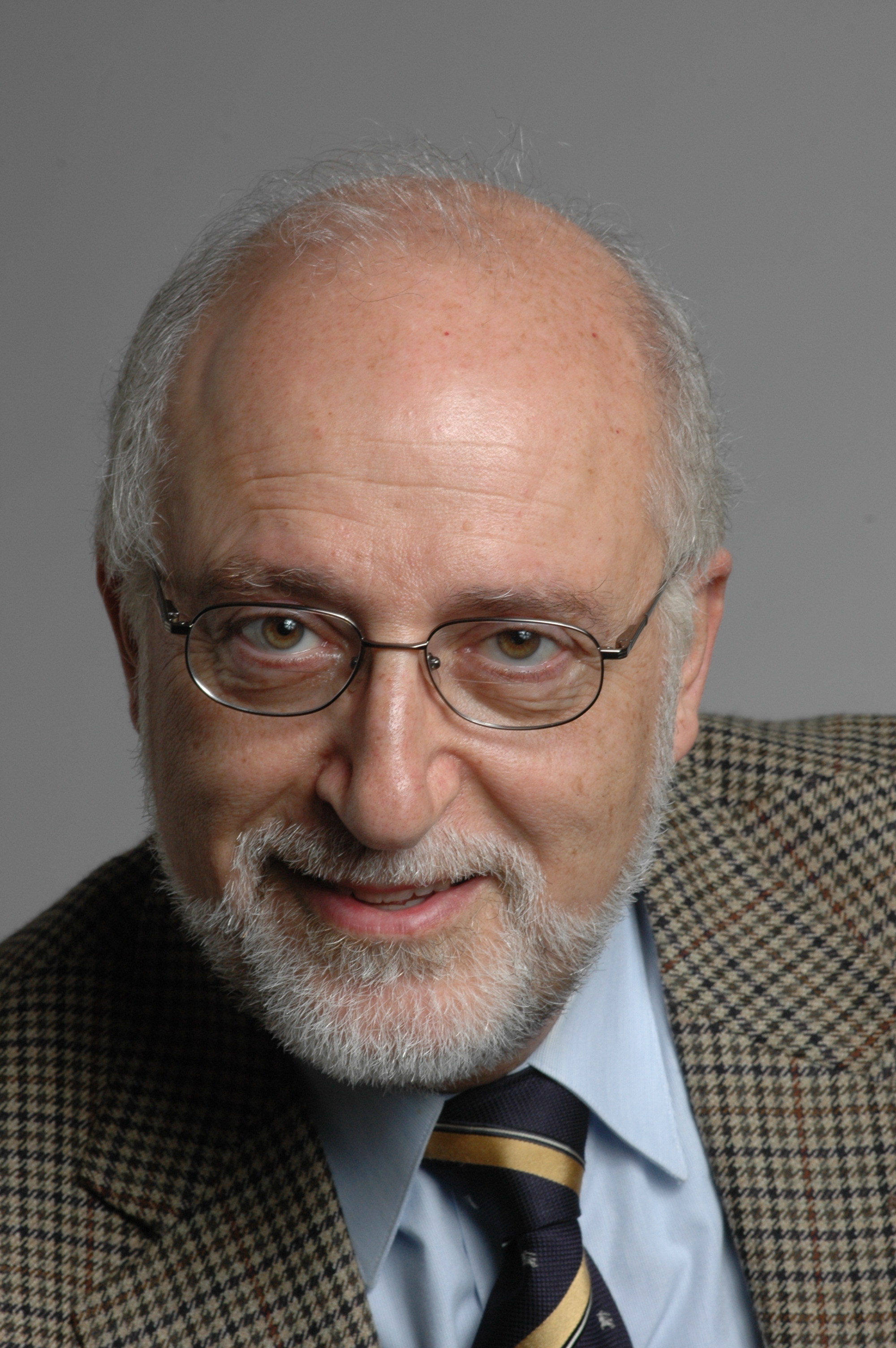
Professor
Tasei Chair in Civil Engineering
Department of Civil and Environmental Engineering
adk@ce.berkeley.edu
Armen Der Kiureghian received his B.S. and M.S. in Civil Engineering from the University of Teheran, Iran, and his Ph.D. in Structural Engineering from the University of Illinois at Urbana-Champaign. He joined the faculty at the University of California, Berkeley in 1978, where he has served as Assistant Professor (1978-81), Associate Professor (1981-85) and Professor (1985-) in the Department of Civil and Environmental Engineering. He has held the Taisei Chair in Civil Engineering since 1999.
After the devastating Spitak earthquake of 1988 in Armenia, Der Kiureghian was instrumental in founding the American University of Armenia (AUA) as an affiliate of the University of California. He has served as the founding Dean of the College of Engineering (1991-2007), Director of the Engineering Research Center (1991-2004), and Interim Provost (2011-2012) of AUA, all concurrently with his Berkeley position. Der Kiureghian continues to serve as a founding member of the Board of Trustees of AUA.
Der Kiureghian's research interests are in safety and reliability assessment of structures, risk analysis and decision-making for infrastructure systems, stochastic dynamic analysis of linear and nonlinear structures, and systems modeling and performance assessment. Among other awards, Der Kiureghian is a recipient of the ASCE Walter L. Huber Civil Engineering Research Prize (1988), CERRA Award (1999), ASCE Alfred M. Freudenthal Medal (2006), ASCE Thomas A. Middlebrooks Award (2006), the IASSAR Distinguished Research Award (2013). He has been honored as a Distinguished Alumnus of the Faculty of Engineering of Tehran University (2004) and of the Department of Civil and Environmental Engineering of the University of Illinois at Urbana-Champaign (2006). He is an elected foreign member of the National Academy of Sciences of Armenia (1998) and an elected member of the U.S. National Academy of Engineering (2011).
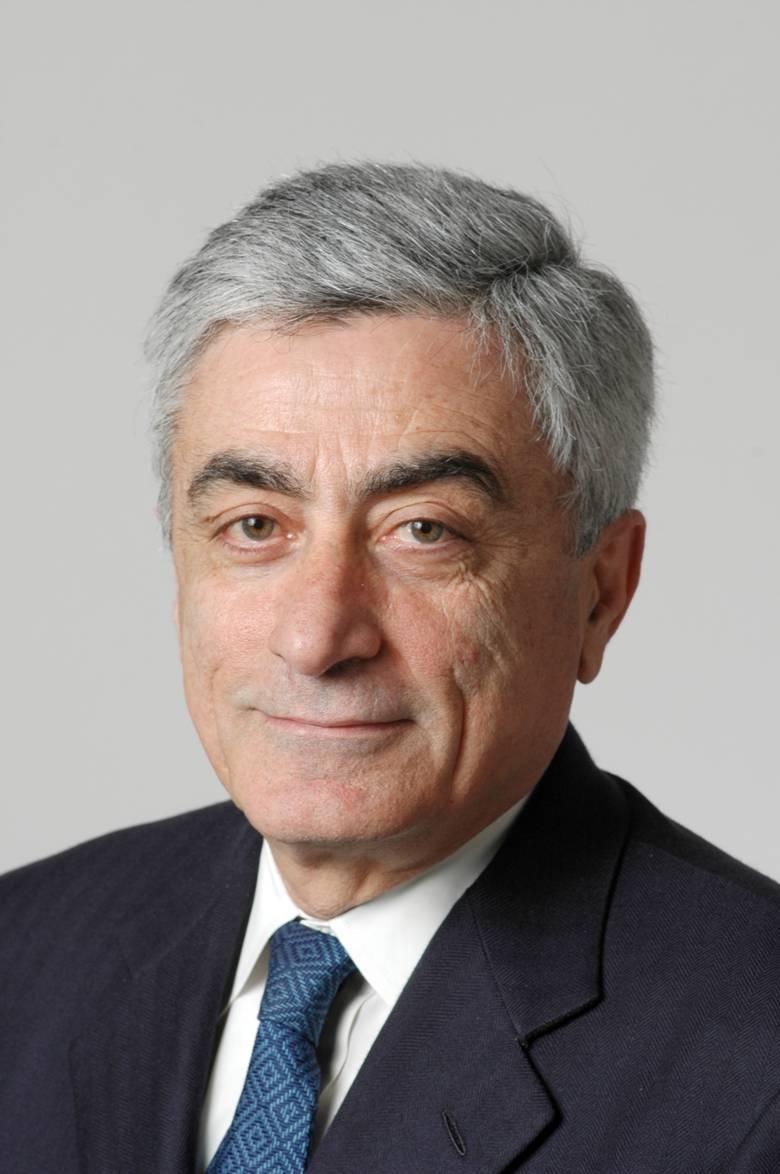 Adib Kanafani
Adib Kanafani
Professor in Graduate School
Department of Civil and Environmental Engineering
kanafani@berkeley.edu
Kanafani, Cahill Professor of Civil Engineering, was born in Lebanon in 1942 and received his bachelor’s degree in civil engineering from the American University of Beirut. Inspired by the work of Gordon Newell and Robert Oliver at UC Berkeley, he left Imperial College in London, where he was pursuing studies in transportation, and enrolled at UC Berkeley where he received his M.S. and Ph.D. degrees in civil engineering. During his student days his research interests and experience ranged widely; he developed a model for the location of parking facilities in cities, then went to work for ITS developing a system of transportation planning for national forests. He also discovered he had a keen interest in aviation, nurtured by a project to develop a new airport in Denmark, a project in which Berkeley’s Professor Robert Horonjeff played a key role. The airport was never built, but the experience changed Kanafani’s perspective. “After that I always had one foot in the air and one foot on the ground,” he told the ITS Review in 1998.
During his tenure as ITS director, which began in 1983, Kanafani helped to create the PATH research program, focusing on intelligent transportation systems. He also co-directed the National Center of Excellence for Aviation Operations Research, a university-industry consortium funded by the Federal Aviation Administration. He mentored both Associate Professor Alexandre Bayen and Associate Professor Raja Sengupta who developed high visibility projects such as the Mobile Millennium and the Connected Traveler projects. “Through his support to this program, Professor Kanafani started a process of modernization of the department, which also brought Civil and Environmental Engineering closer to other departments within the College of Engineering, particularly CITRIS (the Center for Information Technology and Research in the Interest of Society),” Bayen added.
In 2002 Kanafani was elected to the National Academy of Engineering, one of the highest professional honors for an American engineer. In 2008 the National Research Council named him a lifetime National Associate of the national Research Council of the National Academies for his “extraordinary service to the Council in its role as adviser to the nation in matters of science, engineering, and health.” In 2009 he was named Chair of the Transportation Research Board Executive Committee.
Samer Madanat
Xenel Professor of Engineering,
Chair, Department of Civil and Environmental Engineering
Director, Institute of Transportation Studies
chair@ce.berkeley.edu
Samer Madanat is the Xenel Distinguished Professor in the Department of Civil & Environmental Engineering, and the Director of the Institute of Transportation Studies at the University of California at Berkeley. He received a B.Sc. in Civil Engineering from the University of Jordan in 1986, and a M.S and Ph.D. in Transportation Systems from MIT in 1988 and 1991 respectively.His research and teaching interests are in the area of Transportation Infrastructure Management, with an emphasis on modeling facility performance and the development of optimal management policies under uncertainty. He has published extensively in refereed archival journals and conference proceedings.
In 2000, he received the Science and Technology grant from the University of California Office of the President, an award given annually to one faculty member in the UC system. From 2001 to 2011, he served as the Editor-in-Chief of the ASCE Journal of Infrastructure Systems. Several of his former students are faculty members at universities in the US and abroad.
 Alexander Skabardonis
Alexander Skabardonis
Professor in Residence
Department of Civil and Environmental Engineering
skabardonis@ce.berkeley.edu
Alexander Skabardonis is a Professor and Research Engineer at the University of California, Berkeley, and Director of California PATH, a statewide research center on intelligent transportation systems (ITS). His professional interests and expertise include traffic flow theory and modeling, traffic management and control systems, design and operation of transportation facilities, and ITS. He has served as Principal Researcher for 60 extramurally funded contracts and grants totaling over $15M, and has published over 200 papers and technical reports. He is a member of the Transportation Research Board (TRB) Traffic Flow Theory and Freeway Operations Committees, and a Subcommittee member in the TRB Committees of Highway Capacity and Traffic Signal Systems. He serves as a reviewer for several archival journals in transportation.
 Joan L. Walker
Joan L. Walker
Associate Professor
Department of Civil and Environmental Engineering
Center for Global Metropolitan Studies
joanwalker@berkeley.edu
Joan Walker’s research focus is behavioral modeling, with an expertise in discrete choice analysis and travel behavior. She works to improve the models that are used for transportation planning, policy, and operations. Professor Walker joined UC Berkeley in 2008 as an Assistant Professor in the Department of Civil and Environmental Engineering and a member of the interdisciplinary Global Metropolitan Studies initiative. She received her Bachelor's degree in Civil Engineering from UC Berkeley and her Master's and PhD degrees in Civil and Environmental Engineering from MIT. Prior to joining UC Berkeley, she was Director of Demand Modeling at Caliper Corporation and an Assistant Professor of Geography and Environment at Boston University. She is a recipient of the Presidential Early Career Award for Scientists and Engineers (PECASE) – the highest honor bestowed by the U.S. government on scientists and engineers beginning their independent careers.
